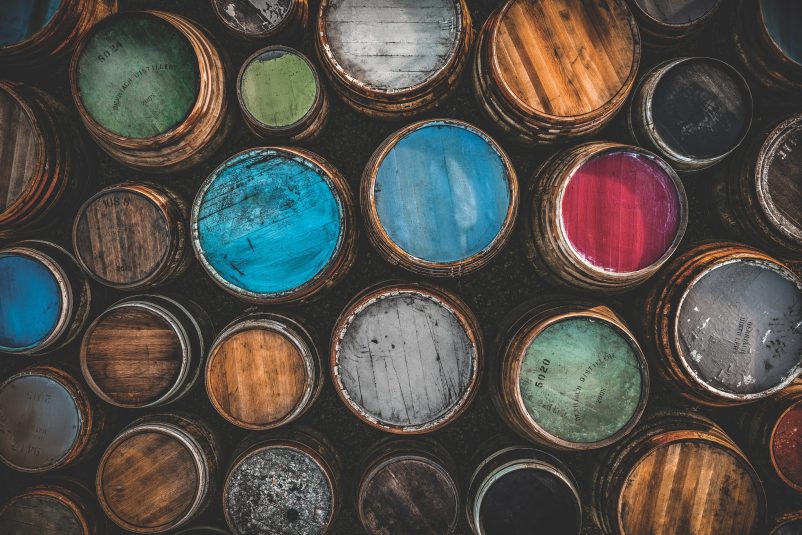From The Civil War to Baseball to The Address, Ken Burns has brought American history to life in a way that has redefined the art of the documentary. Next up: Jackie Robinson, a two-part documentary about the baseball legend, which premieres on PBS on April 11 and 12. Worth spoke to Burns about the film, race today and what he calls “the greatest game ever invented.”
What about Jackie Robinson’s story appealed to you?
He was the central figure of our Baseball series, and his arrival on April 15, 1947, made Baseball in a way a sequel to The Civil War. It was the first real progress made in civil rights since the Civil War. So he always had a centrality.

But why feature him now?
When you see the film you’ll understand instantly why now. Everything on every page of every newspaper that deals with race in America happened to Jackie Robinson. Having a Confederate flag conversation? There’s a moment in the film that relates. Driving while black? Getting blamed as the only person in a fight? Integrating swimming pools? Everything that is part of present-day conversation is echoed throughout his life.
Robinson’s story has been told many times, most recently in the 2013 biopic 42. What fresh perspective do you bring?
Jackie Robinson comes down to us as one of the most important people in civil rights, obviously. He comes down to us, I would say, as the most important person in baseball. He’s not the best player in history, but he’s the most important. You can’t call it the national pastime if you’re systematically excluding fellow citizens because of the color of their skin. But that story has become encrusted with the barnacles of sentimentality and nostalgia. This is a human being who was chosen because he was really good at what he did, and was very outspoken about progress for his race. But what makes the story so interesting is that he was a temperamental, competitive person for whom turning the other cheek was incredibly hard.
Do you explore why he was chosen?
There’s a very famous mythology that’s rooted in fact that Branch Rickey, the president and general manager of the Dodgers, knew that it would be (a), good for business to bring on an African American but more important (b), morally right. The myth is that he points his finger down like God on Jackie Robinson. But the real story is more complicated and involves a movement being pushed by black writers and by left-wing writers including writers from the communist Daily Worker, and from left-wing politicians like the communist city councilman from Harlem—a whole other story we don’t talk about in America—who were pushing for the integration of baseball, and Jackie was not even in the top two or three. But as the pressure began to mount, Branch Rickey felt he had to act and a variety of coincidental things directed him to Jackie. He thought Jackie would be one of several people called up, but it became just Jackie. So we’ve filled out the mythology.

How are you structuring the film?
His story charts the entire civil rights movement, for which he was first the immediate popular symbol but later was marginalized as the movement took more militant, unacceptably violent paths for Jackie Robinson. And we chart that from his birth in 1919 until his death in 1972, with his widow, Rachel, primarily, with his daughter and surviving son, with historians, fellow players, folks from Brooklyn who grew up with him—and with the president of the United States and the first lady.
This clip from JACKIE ROBINSON features President Barack Obama and First Lady Michelle Obama discussing the marriage and strong partnership of Jackie and Rachel Robinson. Directed by Ken Burns, Sarah Burns and David McMahon.
Why Michelle Obama as well as her husband?
Because Jackie and Rachel experienced things not dissimilar to those experienced by the president and first lady as they went through the White House door. They will move you to tears, I believe, as you see them trying to account for where they were in relation to the path that Jackie and, to a much greater extent than many realize, Rachel made. No Rachel, no Jackie. This isn’t just a “behind every great man” kind of thing. This was a true partnership and he understood it early on. He began to say “we” even for things he’d done on the field. She would come to as many games as she could, and therefore they didn’t need to bring all of the ugliness home. All of the black cats on the field. All of the death threats. All of the use of the n-word.
You released Baseball in 1994 and in 2010 you came back to the game in Baseball: The Tenth Inning. What drives your interest in that particular sport?
Let me just be unabashed: It’s the greatest game ever invented. I love football and basketball, don’t get me wrong, but there’s no game better than baseball.
Why?
I’ll give you just a few reasons: It’s the only game where the defense has the ball. It’s the only sport in which the person scores, not the ball. In fact, the baseball can be out of the park and the person will definitely score. There’s no clock, and there’s a kind of chess-like intricacy to it. And it’s a sport that’s accompanied every decade of our national narrative, so it reflects us. If you want to look at the history of immigration, just look at the history of baseball stars. English, Irish, German, Italian, Jewish, African American, Spanish and Asian. Does that ring a bell? That is the history of U.S. immigration in a nutshell. It’s a game where the statistics matter. A 300 hitter means the same thing to my daughters as it does to my father, as it did to my great-great-grandfather who fought in the Civil War. And there’s almost nothing in American life that you can say that about.
And Jackie Robinson represents its finest moment?
Its finest moment is Jackie coming up. Which means it’s always mirroring, for better or for worse, who we are. Why was it that baseball is the place where some real progress in civil rights occurred? In 1947, for crying out loud. In 1947 Martin Luther King was a junior at Morehouse College. In 1947 the military hadn’t been integrated. 1947 Rosa Parks was about 10 years from refusing to give up her seat—but Jackie had already done that, three years before on a military bus at Fort Hood in Texas. He was the first person to refuse to go to the back of the bus. And he got court martialed for it, and he was acquitted.
Are there parallels between Robinson’s story and that of boxer Jack Johnson, whose story you told in 2005’s Unforgivable Blackness?
Yeah, and Johnson was well before Jackie Robinson. But boxing was a marginal sport. It was frowned upon by both black society and white society. It was a separate underclass that followed it, gamblers and “sporting men,” which meant they visited prostitutes and operated in the nefarious underworld of life.
So why is sports the place where so many barriers are broken?
It is a place where people want to win. And while there was great resistance to Jackie, as there were to African Americans in all the other sports, you want to win. And if someone has the talent, you want to play them. Let’s just say it’s 1947 and you’re a Brooklyn Dodgers fan and you’re a racist. You’ve got three things you can do: You can change your affiliation, go to another team, but integration is going to catch up and you know it. You can quit baseball, but then you’re giving up the best game ever invented. Or you can change. And that’s what happened— Jackie changed hearts and minds.
This article originally appeared in the February/March 2016 issue of Worth.







